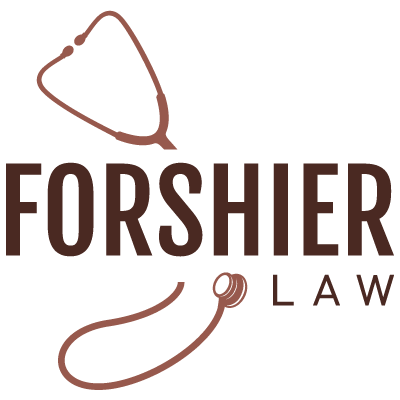By Barbara Forshier on February 17th, 2023 in
While our justice system deems us innocent until proven guilty, the issue becomes more complex when medical professionals are involved. HIPAA prevents nurses and other medical providers from publicly disclosing any information about a patient’s medical care or condition, which can hinder the provider’s own defense by prohibiting a public response to allegations of wrongdoing. Further, the mere accusation of professional wrongdoing can easily wreak havoc on a nurse’s career as public sentiment often presumes guilt rather than innocence. In short, a nurse’s career can potentially be ruined by false allegations. If you are a Minnesota nurse facing false allegations, contact the highly experienced nursing license attorney at Forshier Law. Home health care nurses can also be falsely accused. Often there are cameras in the homes. If there is an allegation against you ask for the camera footage showing your conduct.
What Are Some of the Most Common False Accusations Against Nurses?
Nurses who work in fast-paced ER, critical care, or intensive units are at particular risk of false allegations related to charting errors and chain-of-command decisions. Most nurses have, at one time or another, committed a simple documentation error—especially those who attend to multiple patients with critical needs. One simple failure to document the medical process can result in false allegations made against the nurse. In other words, one simple discrepancy resulting from a chaotic, fast-paced environment can result in an exaggeration of the issue and false allegations of wrongdoing. In some cases, a hospital administrator will conflate a charting error—or even lie about the error. A nurse who has had any level of disagreement with a superior, co-worker, or hospital administrator is at particular risk of facing false allegations over documentation or the chain of command. Documentation issues may include an absence of documentation regarding treatment or a timing entry mistake. When an entry on a chart is entered later—because in many cases a nurse cannot stop lifesaving treatments to make an immediate chart entry—the nurse may be falsely accused of covering up an error in treatment. Documentation is where scrutiny against nurses comes into play most often. A lawyer might argue that if a test, examination, or finding was not documented, it was not done—or that documenting it later indicates deception. Chain of command issues involve allegations against a nurse who “should have” second-guessed a physician’s orders. If the nurse believed intervention was required but failed to act on this belief, he or she could be accused of “deviating from the standard of care.” If, on the other hand, the nurse did not believe the physician’s orders should have been scrutinized, he or she risks sharing in the complaint made against the physician. In other words, the chain of command allegations can feel like a no-win situation for nurses. Documentation and chain of command issues call the nurse’s credibility into play—and can potentially wreck their career.False allegations of sexual misconduct are among the worst a nurse can face. Male and female nurses must perform invasive procedures on those of the opposite sex on a regular basis. When there was absolutely no wrongdoing, such an accusation can be devastating. While having a co-worker in the room during such a procedure can vastly decrease the number of false allegations of sexual misconduct, this is simply not practical due to staffing issues. However, if a patient seems significantly uncomfortable with having a single nurse in attendance it is wise to have another staff member present. Other issues that can lead to false—or misplaced—accusations against nurses include: failure to respond to a patient in a timely manner, failure to note a change in the patient’s vital signs, and failure to call a physician for assistance. While these issues are called “failures,” in fact, they could be the result of short staffing. It is a physical impossibility for a nurse to be everywhere at once, therefore, the nurse is being accused of something he or she had absolutely no control over.
How Do I Avoid False Accusations as a Nurse?
As if nurses don’t have enough to deal with on a daily basis, they must now be wary of false accusations made against them that could potentially wreck their careers and reputations. Whenever possible, nurses should have another person in the room, particularly with difficult patients or whenever a particularly invasive procedure is called for. Delays in charting as well as overriding electronic medication cabinets should be avoided whenever possible. It is important to understand that the state Board of Nursing exists to protect the public—they are not there for nurses. Your attorney is the person who will be there for you when you are facing false allegations. Attorney Barbara Forshier will aggressively fight for your future and your reputation.
How the Nursing License Attorney at Forshier Law Can Help
Battling false accusations against nurses can be frightening and overwhelming. Since talking to an investigator can only hurt you—your words can be taken out of context and used against you—never talk to anyone until you have spoken to your attorney. Your nursing license is too valuable to lose as a result of false accusations; a nursing license attorney from Forshier Law is waiting to help you through this difficult time. Attorney Barbara Forshier has more than 35 years of experience as an RN in an acute care setting and is dedicated to defending nurses’ licenses. Forshier Law practices only in this highly specialized area, caring for nurses in the same way nurses care for their patients. Contact Forshier Law today for the legal help you need.
